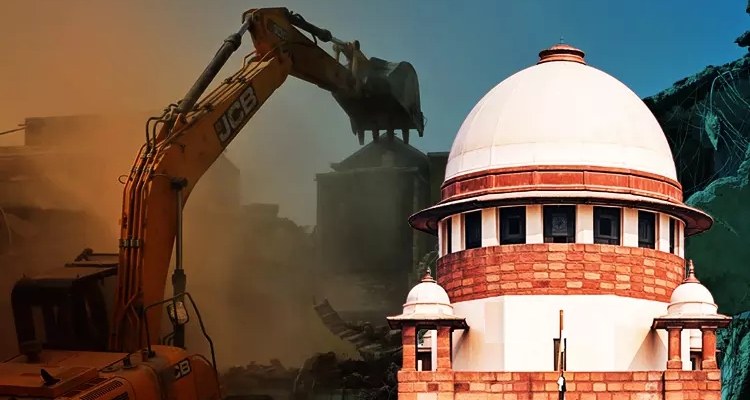
The Supreme Court on Monday adjourned the hearing of a petition concerning the alleged demolition drive in Gir Somnath district, Gujarat, until December 2.
A bench comprising Justices BR Gavai and KV Viswanathan decided to postpone the matter after the Gujarat Government assured the court that it would file a response to the petition by the end of the day.
Solicitor General Tushar Mehta, representing the Gujarat Government, stated that the government would file its reply to the petition, prompting the court to reschedule the hearing for December.
The petition, filed by the Summast Patni Musslim Jamat through advocate Anas Tanwir, sought the initiation of contempt proceedings against Gujarat authorities for allegedly violating an earlier Supreme Court order dated September 17.
In the previous hearing, the Gujarat Government assured the court that the lands where demolitions had occurred in Gir Somnath would not be allocated to third parties until the matter was resolved.
Alongside the Jamat, the Auliya-e-Deen Committee of Junagadh also filed a plea challenging the Gujarat High Court’s refusal to stay the demolition drive in Somnath.
During an earlier session, the Supreme Court had declined to stay the demolition but made it clear that if it found the Gujarat authorities in contempt of its September 17 order, it would not only penalize the responsible officials but also order the restoration of the demolished structures.
The September 17 order directed that no demolitions should take place across the country without prior approval from the Supreme Court. However, the order excluded demolitions involving unauthorized structures in public spaces, such as roads, streets, footpaths, and bodies of water, or structures for which a court has already issued a demolition order.
The petitioners claimed that Gujarat authorities carried out illegal demolitions on September 28, 2024, targeting centuries-old Muslim religious sites, including mosques, dargahs, and mausoleums. They argued that the demolitions were conducted without issuing notices or providing any opportunity for hearings, violating the principles of fairness and due process.




